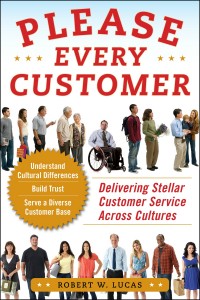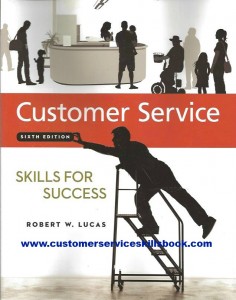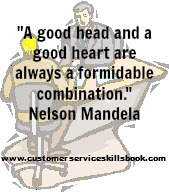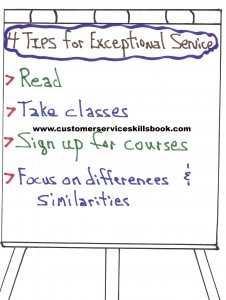Delivering Positive Customer Service in a Global Work Environment
What is a Positive Global Customer Service? It is recognizing that you are dealing with unique individuals at each contact point with a customer or potential customer and taking the time to listen effectively, respond appropriately and address their needs. It is also taking ownership and responsibility for your environment and customer interactions by being prepared and doing whatever it takes to help guarantee a successful outcome when dealing with internal and external customers. Most customer service representatives understand this and go out of their way to deliver the best customer service possible.
It is crucial for customer service representatives and every other organizational employee to develop a customer-centric attitude (e.g. answering the phone professionally, returning calls and email within a timely manner, remembering little details shared by customers and referring back to them during a conversation, or going out of your way to help resolve an issue when service breaks down) if the organization hopes to be successful. This means continually demonstrating good customer service skills and upgrading your knowledge and skills on a regular basis.
In a diverse world, providing positive global customer service also means applying what Dr. Tony Alessandra calls the Platinum Rule (“Do until others as they want to be done unto them”) in one of his books. In other words, instead of or treating people like you want to be treated, get to know them. Find out what they like, dislike, expect, value, believe and want, then attempt to satisfy them to the best of your ability. If you cannot provide what they need, consider getting someone else to assist who can better understand and address actual needs.
From a service perspective, when customers believe that service providers are knowledgeable about various aspects of diversity and value others, they are likely to reward the organization with their business. Not only will they typically remain loyal to an organization that they like, but they will usually spread the word about their positive experiences. This equates to more revenue generated for the organization, which can then afford to increase salaries, expand and enhance their facilities and operations, provide training and benefits. It can also better market and fend off competition more effectively.
On the other hand, if customers believe that they are being treated indifferently and that service providers do not understand or care about their particular needs, they will potentially desert the organization and encourage their friends to do likewise. This means the potential loss of revenue and all its associated benefits.
For more information about delivering positive global service to a diverse customer base as well as hundreds of customer service tips for delivering excellent customer service, get a copy of my book Please Every Customer: Delivering Stellar Customer Service Across Cultures.









